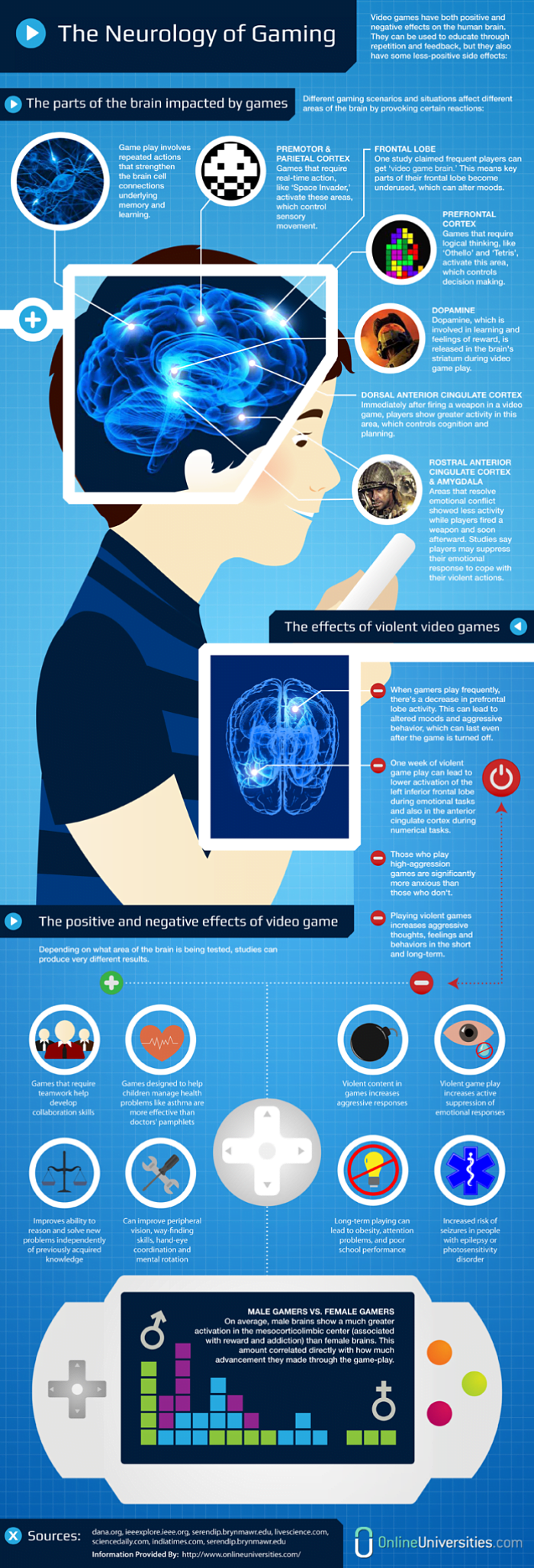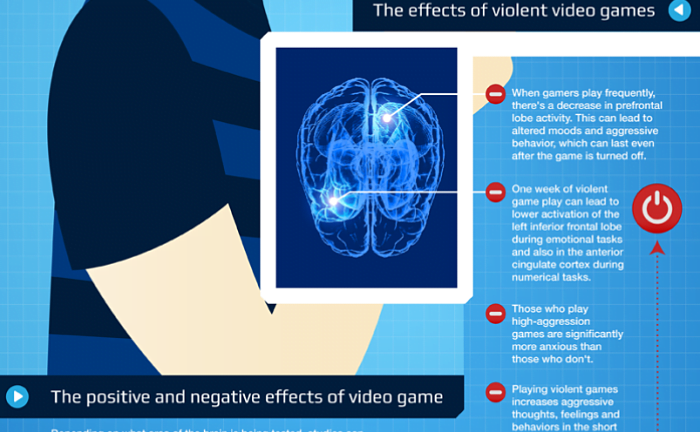The psychological effect of video games on the human brain, especially in children, is a very controversial topic as video game usage rates skyrocket in the 21st century.
Similar to the argument on whether or not TV is beneficial to development, some people claim that video games are detrimental to the development of the human brain, while others praise video games as helping to sharpen the human brain. Others say they can be addictive and would require video game addiction programs eventually.
See also: Internet Today Compared to the Internet of the 1990s [Infographic]
The reason this topic is so hotly contested is because the real answer is a little bit of both. Video games can be both beneficial and detrimental to the human brain.
To help identify which aspects of playing video games are helpful and which aren’t, OnlineUniversities.com has published an infographic (posted below) regarding what effects video games have on the brain.
Overview of the Effect Video Games Have on the Brain Infographic:
- Games that feature repeating actions strengthen brain cell connections increasing memory and learning.
- “Real-time” action games activate premotor and parietal cortex increasing sensory movement.
- Frequent video games users can get “video game brain” from underuse of the frontal lobe, increasing mood alterations.
- Logical thinking games increase the use of the prefrontal cortex which controls decision making.
- Dopamine is released in the brain while playing video games.
- Weapon use in video games activates the dorsal anterior cingulate cortex which controls cognition and planning.
- When playing violent games there is less activity in the rostral anterior cingulate cortex and the amygdala – areas used to control and solve emotional conflict.
- The use of violent video games increases moodiness, anxiety and aggressiveness – even after turning off the game.







